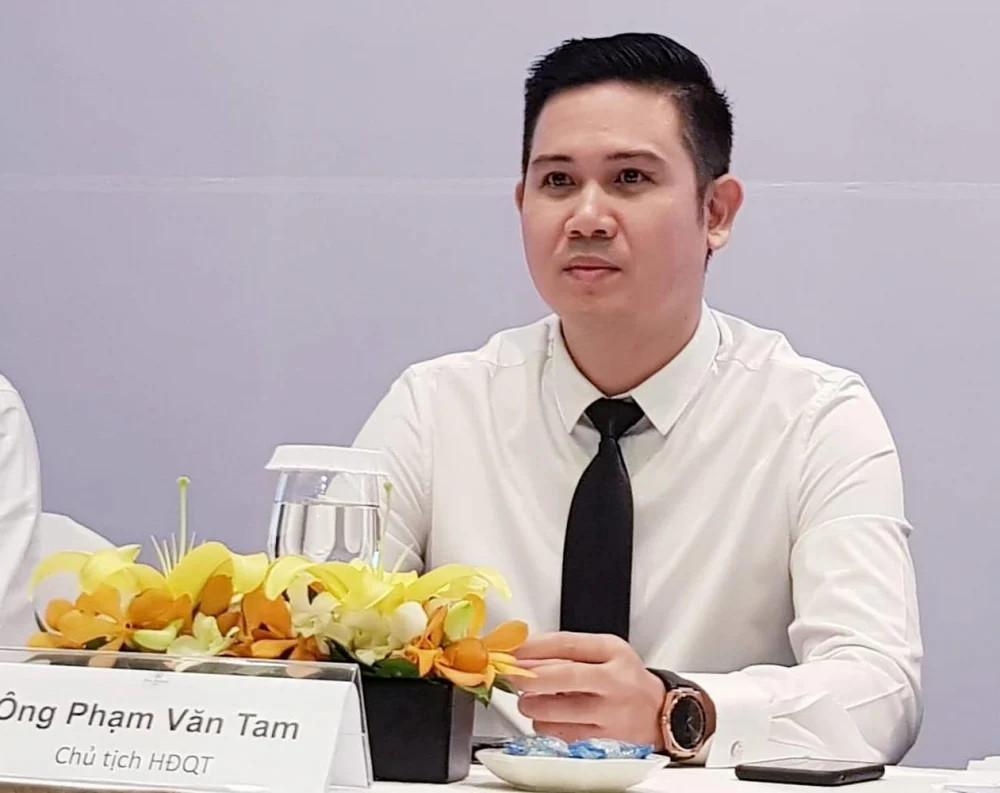
On June 23, the Ho Chi Minh City Police Department prosecuted Mr. Pham Van Tam (born in 1980, former Chairman of the Board of Directors of Asanzo Company) for tax evasion.
Mr. Pham Van Tam became widely known after appearing on the Shark Tank program. In mid-2019, during Shark Tank season 3, he was introduced as one of the new "sharks," alongside familiar names like Pham Thanh Hung, Nguyen Ngoc Thuy, and Thai Van Linh. He also launched the Asanzo Startup Fund with an initial capital of 200 billion VND (US$10 million).
Shark Tam's fame surged, and he was seen as a young, dynamic businessman who built the "Made in Vietnam" Asanzo TV brand from scratch.
Established in 2013, Asanzo quickly became a major player in the TV market, only trailing behind giants like Samsung, LG, and Sony by mid-2019. Asanzo's market share was approximately 16%, compared to LG's 17%, Sony's 25%, and Samsung's 35%, according to market research firm GfK.
Asanzo's success was attributed to its strategy of selling very affordable TVs, which were often 30-40% cheaper than similar models. The company focused on the rural market, which accounted for 70% of its sales, as well as motels, hotels, and restaurants.
According to the company’s website, initially, Asanzo ordered foreign components and assembled them, removing unnecessary features to keep costs low. This approach led to the second-generation 25-inch Asanzo TV being sold for less than 2 million VND, which was quickly accepted by the market. Asanzo's TVs were tailored to regional needs, such as battery-powered TVs for the southwestern region, seawater-resistant circuit boards for the Central region, and foreign-looking designs for the North.
Shortly after his Shark Tank appearance, Shark Tam became embroiled in a scandal regarding the origin of Asanzo's products. This led to his removal from the show's Investment Council.
Further controversies followed, including a dispute with Sharp Vietnam. In November 2019, Sharp Vietnam accused Asanzo of falsifying documents and providing false information. It claimed Asanzo inaccurately announced a partnership with Sharp Roxy (Hong Kong - SHR), which was not true.
In October 2019, the General Department of Customs found that Asanzo misled consumers about its products, claiming "Japanese technology" while primarily assembling imported Chinese components.
Regarding taxes, a 2019 inspection by the Ho Chi Minh City Tax Department revealed that Asanzo established 19 affiliated companies to avoid special consumption tax, leading to a fine and back taxes amounting to 47.6 billion VND.
After the Asanzo scandal, Shark Tam ventured into agriculture, announcing to join agroup of investor to pour a 2,000 billion VND investment in a system of cow farms. However, T&T 159 Company, the supposed partner, refuted his claims, stating there was no such investment, only an exclusive distribution agreement for fertilizer.
On June 23, the Ho Chi Minh City Police Investigation Agency prosecuted Mr. Pham Van Tam for tax evasion. Initial investigations revealed that Mr. Tam directed the signing of contracts with several companies but did not issue invoices or record sales revenue, leading to tax evasion of over 15.7 billion VND.
Manh Ha